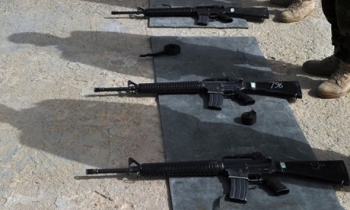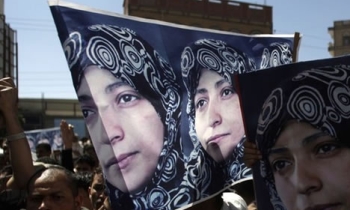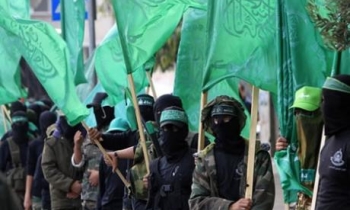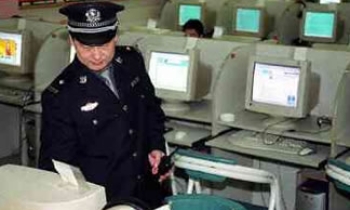Many Moroccan journalists are facing continued persecution by the State which is having an adverse impact on the country’s free press. Any hope of the monarch’s intervention in safeguarding the freedom of the press has also dimmed as journalists investigate the role of the royal family in running the country.

The 2007 country report by Reporter sans Frontieres (RSF) highlights, “The hopes raised when Mohamed VI became king in 1999 have slowly disappeared and the country’s journalists face prosecution that severely affects their work, even though taboo subjects are now fewer.†King Mohammed VI and government officials claim to lead a constitutional monarchy and insist that Morocco is in democratic transition. Publicly, they have embraced a free press.
However, one of the recent glaring of State persecution has been the arrest of Abderrahim Ariri, publisher of weekly Al Watan Al An (The Nation Now), and one of his journalists, Mostapha Hurmatallah, on July 17 in Casablanca.
They were arrested after they published a series of stories by Ariri et and Hurmatallah. They were supposed to be "The secret reports behind Morocco's state of alert." One of the stories was based on a Directorate for Territorial Surveillance (DGST) memo — which was reproduced — urging all the security services to be vigilant after a video was posted online by a terrorist organisation that contained "a solemn call for jihad against all the Maghrebi governments, identifying Morocco by name."
In a statement carried by the main national TV station, prosecutor general Moulay Abdallah Alaoui Belghiti said he had ordered an investigation to find out how secret documents were leaked and who was responsible. The two journalists would be prosecuted for publishing "reports of a confidential nature linked to defence secrets," he said, adding that other documents found during the search would be used in evidence against them.
RSF condemned the arrest, "It is wrong to arrest these two journalists and keep them in custody, especially as it would have sufficed to summon them for questioning." The press freedom organisation said, "It seems as if this is meant to be a warning to any journalist who might be inclined to investigate Morocco's ability to defend itself against terrorism."

RSF has also made it clear that "the internal memo published in the weekly seems not to have contained any confidential information as it only referred to online posts that anyone can access. While it is understandable that the authorities are trying to find out who leaked the memo, the journalists should not be turned into scapegoats."
Committee to Protect Journalists (CPJ) Executive Director Joel Simon reacted, “We are alarmed by the detention of our colleagues and the raid on their offices. These two journalists were reporting a story of obvious public interest and there can be no justification for depriving them of their liberty.â€
Earlier, two French-language publications were especially targeted by politically-inspired legal action. The Casablanca appeal court ordered the weekly TelQuel on February 7 to pay libel damages of 500,000 dirhams (€50,000) to the head of a community association.
A few days later Abubakr Jamai, managing editor of Le Journal Hebdomadaire who is a frequent palace critic, and journalist Fahd Iraqi were ordered to pay 3.1 million dirhams (€284,000) in damages for libelling the European Strategic Intelligence and Security Centre (ESISC). The cause was an article criticising the impartiality of an ESISC study of the Western Sahara Polisario Front independence movement.
“We’ve been used as a tool to communicate to others where the boundaries are,†said Aboubakr Jamaï in light of the judgement.
The spate of attacks on journalist rights has dented Morocco’s international image as a democratising Arab nation and a relative oasis for press freedom in a region where independent journalists are often out of work or under siege.
A CPJ Special Report on the country’s media presented a “Moroccan Façade†where it noted the regression in the country’s press freedom. Politicised court cases, inappropriate media laws, and harassment of journalists have become an alarming trend according to the report.

Another trend has been Morocco’s press laws. Adopted in 2002, they very harsh despite a number of positive aspects (reducing prison sentences and fines for press offences, to reducing the red tape involved in launching a new newspaper, and forcing authorities to give a reason for seizing issues of newspapers).
The troubling aspects of the press laws are frequently abused. It has retained jail terms for insulting the king, princes or princesses, although it reduced the term of imprisonment from 20 years earlier to five now. And it retained the government's right to ban Moroccan or foreign newspapers if they "undermine Islam, the monarchy, national territorial integrity or public order."
The evidence of the ill-effect of the law is found in the five years since it was adopted. The law has enabled the courts to convict journalists at least 13 times, without counting those journalists who were tried under anti-terrorism legislation.
In the last five years, three Moroccan journalists have gone to jail for extended periods for their published work — ranking Morocco alongside Tunisia as the Arab world’s leading jailer of journalists. Together, these factors prompted CPJ in May to designate Morocco as one of the world’s worst backsliders on press freedom.









